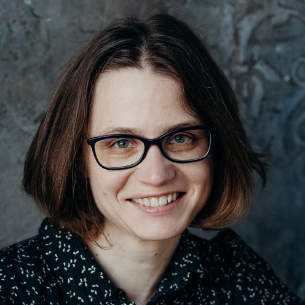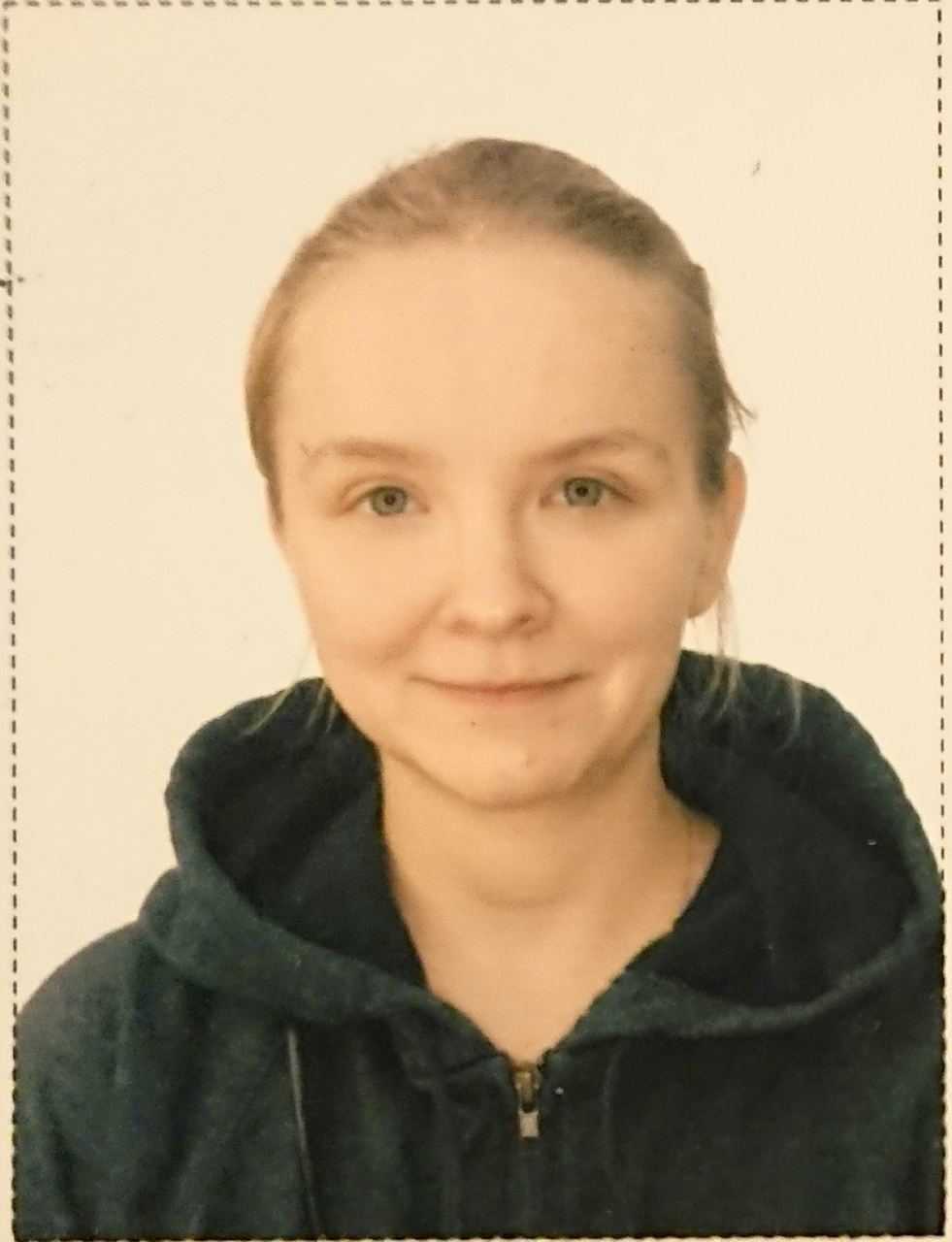Active Ageing Policy and Pension Reforms: Russian and International Experience, 2022
The Institute for Social Policy (ISP) at the National Research University – Higher School of Economics is hosting since 2019 a regular academic workshop “Active Ageing Policy and Pension Reforms: Russian and International Experience”.
The workshop is to encourage academic and expert discussion on social policy development, aging population, active ageing, and pension reforms that are to be based on research and international experience.
The workshop favours an interdisciplinary approach and expects to bring together Russian and foreign experts in different fields such as economy, law, sociology, demography as well as decision-makers dealing with these issues.
The workshop is to focus on three key topics:
(1) social and economic dimensions of aging population and active ageing;
(2) pension reform;
(3) social insurance and its improvement options.
Academic Leader – Oksana Sinyavskaya, Deputy Director of the Institute for Social Policy.
Project Coordinator – Olga Voron, Advisor to the Director of the Institute for Social Policy.
On December 15, 2022, the 23rd scientific seminar from the cycle Active Longevity Policy and Pension Reforms: Russian and International Experience of the HSE Institute for Social Policy was held. The seminar presented a book by our colleagues from the RANEPA Ksenia Manuilskaya, Dmitry Rogozin and Olga Solodvnikova: The Aging Roadmap, or How Not to Become a Hostage of Your Home after Retirement. The presentation was organized in full-time format within the framework of a grant provided by the Ministry of Science and Higher Education of the Russian Federation (Grant ID: 075-15-2022-325)..jpg)
![]()
The book examines various aspects of old age planning, especially the problem of housing adapted to the needs of the elderly. The authors show that a timely understanding and search for solutions to the housing problem helps to avoid one of the main traps of old age — a situation characterized by a sharp discrepancy between home comfort and attachment to it. The analysis of various facets of aging is carried out based on the results of public opinion polls, as well as with the involvement of research by Russian and foreign scientists. One of the results of the work is the roadmap of aging — a key element of aging planning.
Book Presentation: The Aging Roadmap, or How Not to Become a Hostage of Your Home after Retirement |
|
| Speakers : | |
|
Specialist in the field of Sociology of aging and methodology of social research RANEPA |
|
 |
Dmitry Rogozin, Director of the Center for Federal Studies of the Institute of Social Analysis and Forecasting of the Russian Academy of Sciences, Senior Researcher at the Institute of Sociology of the Russian Academy of Sciences
|
|
|
Olga Solodovnikova, Ph.D. canidate, journalist, sociologist |
|
Moderator : |
|
| |
Oksana Sinyavskaya, Deputy Director of the HSE Institute for Social Policy
|
|
Debaters : |
|
| |
Alexander Nikulin , Director of the Chayanovsky Research Center of the MSSES, Head of the Center for Agrarian Research of the Institute of Applied Economic Research of the RANEPA |
|
|
Elena Seleznyova, Senior Researcher at the Center for Comprehensive Social Policy Research, Associate Professor at the Institute for Social Policy |
On October 4, 2022, the 22nd scientific seminar Platform Employment in Russia: Scope, Motives and Barriers of Participation from the cycle Active Longevity Policy and Pension Reforms: Russian and International Experience of the HSE Institute for Social Policy was held in a hybrid format within the framework of a grant provided by the Ministry of Science and Higher Education of the Russian Federation (Grant ID: 075-15-2022-325).
The seminar was opened by Vice-Rector of the Higher School of Economics, Director of the Institute for Social Policy of the Higher School of Economics, initiator of the Human Capital Multidisciplinary Research Center Lilia Ovcharova. Svetlana Biryukova presented the report Platform Employment in Russia: Scale, Motives and Barriers to Participation (RU) (team of authors: O. Sinyavskaya, S. Biryukova, E. Gorvat, D. Kareva, D. Stuzhuk, K. Chertenkov).
Oksana Sinyavskaya, Deputy Director of the HSE Institute for Social Policy, acted as moderator. Denis Strebkov, Senior Researcher at the Laboratory of Economic and Sociological Research, Deputy Head of the Department of Sociology at the Faculty of Sociological Sciences of the Higher School of Economics, Yuri Voronin, Chief Financial Commissioner of the Russian Federation, and Elena Feoktistova, Managing Director for Corporate Responsibility, Sustainable Development and Social Entrepreneurship of the Russian Union of Industrialists and Entrepreneurs, actively participated in the discussion.
|
Speaker: |
|
 |
Svetlana Biryukova, Senior Researcher at the Center for Integrated Social Policy Research at the HSE Institute for Social Policy Platform Employment in Russia: Scale, Motives and Barriers to Participation |
| Moderator: | |
|
Oksana Sinyavskaya, Deputy Director of the HSE Institute for Social Policy |
|
| Debator: |
|
| |
Denis Strebkov , Senior Researcher at the Laboratory of Economic and Sociological Research, Deputy Head of the Department of Sociology of the Faculty of Sociological Sciences of the Higher School of Economics |
It should be noted that employment in the digital economy, including on online platforms, is a new and rapidly growing form of non-standard employment, attention to which has increased in all countries of the world during the coronavirus pandemic. The presented report focuses on the issues of assessing the size of platform employment in Russia, as well as on the main motives and barriers to the inclusion of workers in platform employment; the role of platform employment in the pandemic is additionally discussed.
The video is available via the link
On April 14, 2022, a special seminar Long-term Care System from the cycle Active Longevity Policy and Pension Reforms: Russian and International Experience of the HSE Institute for Social Policy was held. It was organized in the format of a round table on the Webinar online platform under the chairmanship of Lilia Ovcharova at theXXIII Yasin (April) International Scientific Conference on the problems of economic and social development. The seminar was organized within the framework of a grant provided by the Ministry of Science and Higher Education of the Russian Federation (Grant ID 075-15-2020-928).
The report The System of Long-term Care: Lessons from International Experience for Russia, Author's team: E. Selezneva, O. Sinyavskaya, E.Yakushev, E. Gorvat, N. Grishchenko, D. Kareva. Scientific editor – O. Sinyavskaya
Since 2018, in the Russian Federation, within the framework of the national Demography project, a pilot project has been implemented to create a long—term care system, an important social program of modern aging societies that allows not only to improve the quality of life of people with self-care deficiencies, but also to make a certain contribution to achieving the national goal of increasing life expectancy. The report, prepared within the framework of the Demographic and social Factors of Active Longevity of the Human Capital Multidisciplinary Research Center is devoted to a review of international recommendations and foreign experience in the field of long-term care for persons with self-care deficiencies and assessment of their relevance for Russia. Along with the discussion of the experience of other countries, the report presents the results of an analysis of Russian approaches to the formation of the model and the regulatory framework of the long-term care system. The work is intended for a wide range of readers, including decision makers in the field of social services and long-term care, as well as for the expert and business community, researchers, teachers, students and journalists.
| Moderator | |
| |
Lilia Ovcharova, Vice-Rector, Director of the HSE Institute of Social Policy |
| Speakers : | |
| |
Oksana Sinyavskaya, Deputy Director of the HSE Institute for Social Policy The System of Long-term Care: Lessons from International Experience for Russia |
.jpg) |
Yuri Voronin, Chief Financial Commissioner of the Russian Federation Pilot Projects to Create a System of Permanent Outsider Care in the Russian Federation: Lessons and Suggestions |
| |
Maria Morozova, General Director of the Elena and Gennady Timchenko Charitable Foundation The Experience of NGOs in the Field of Care on the Example of the Coalition Care is Near |
| |
Elizaveta Oleskina, Director of the Charity Foundation Old Age in Joy Lessons of the Pilot Project on Long-term Care System |
.jpg) |
Ramaz Ahmeteli, Chairman of the Council of the National Association of Social Service Participants Long-term Сare System: Priorities and the Role of the Non-Governmental Sector in Social Services with Accommodation |
.jpg) |
Alexander Shkrebelo, Executive Director of the Association of Professional participants of the Long-term Care System The Main Changes in the NPA of the Regions in the Process of Implementing Long-term Care Systems |
Issues discussed:
• Lessons from international experience in the organization of long-term care system relevant to the creation of the Russian long-term care system
• Lessons of the pilot project on the long-term care system in the framework of the National Demography Project
• Lessons from the COVID-19 pandemic for the home-based and inpatient care sector in Russia
• The role of non-state actors, including non-profit and charitable organizations
• Prospects for the development of the care system in the new economic conditions: identify key forks, development priorities in the face of new restrictions
On February 22, 2022, the 21st scientific seminar from the cycle Active Longevity Policy and Pension Reforms: Russian and International Experience of the HSE Institute for Social Policywas held. It was organized on the Zoom online platform in cooperation with the St. Petersburg charitable Public Organization Prospects and with the support of the Ministry of Labor of Russia as part of a grant provided by the Ministry of Science and Higher Education of the Russian Federation (Grant ID 075-15-2020-928), and was dedicated to the development of a financial and economic model of assisted living for citizens with mental disabilities.
The purpose of the study was to create a financial and economic model of living arrangements, social services and support for citizens with mental disabilities who have different degrees of need for outside help, with a home-based form of service within the framework of internatosubstituting technology when disabled people live in small groups in an ordinary urban or rural environment, as well as in comparison with a stationary form of social service. Within the framework of the work, international and domestic experience in providing assistance, assessing and measuring the quality of life, organizing the life of citizens with mental disabilities, including the existing financial and economic models of accompanied residence of persons with mental disabilities in Russia was analyzed; the key principles, advantages, restrictions on the stay of persons with mental disabilities in accompanied residence were formulated; a methodology for assessing the quality of life of persons with mental disabilities in boarding schools and in assisted living has been developed and tested for use in Russia; a financial and economic model of assisted living has been developed for implementation in Russia, and the effects of its implementation have been assessed. The study used original sociological and economic data collected by researchers during the project.
|
Speaker: |
|
|
Oksana Sinyavskaya, Deputy Director of the HSE Institute for Social Policy |
|
| Moderators: | |
|
Olga Voron, Advisor to the Vice-Rector of the HSE
|
|
|
Oksana Sinyavskaya, Deputy Director of the HSE Institute for Social Policy |
|
| Debaters : |
|
|
Irina Novikova, Head of the Methodological Center of the Federal Center for Scientific, Methodological and Methodological Support for the Development of the system of Comprehensive Rehabilitation and Habilitation of Disabled People and Disabled Children Head of the Federal State Budgetary Institution of the ITU Ministry of Labor of Russia
|
|
|
Ludmila Kozhushko, Head of the Department for the Organization of Assisted Living of Disabled People of the Institute of Early Care and Support of the G.A. Albrecht Federal State Medical Research Institute of the Ministry of Labor of Russia
|
|
| |
Elena Tarasenko, Deputy Head of the HSE Department of Health Management and Economics |
On January 20, 2022, the 20th scientific seminar from the cycle Active Longevity Policy and Pension Reforms: Russian and International Experience of the HSE Institute for Social Policy Licensing of Social Services in Russia: Approaches and Conclusions from International Experience was held. It was organized in the format of a round table on the Zoom online platform together with the National Association of Social Service Participants and the National Laboratory of Short-Term Care within the framework of a grant provided by the Ministry of Science and Higher Education of the Russian Federation (Grant ID: 075-15-2020-928), and was dedicated to the licensing of social services.
The avalanche-like, chaotic and uncontrolled development of non-governmental, primarily private organizations that provide accommodation services to elderly people with a shortage of self-service, makes it possible to fully meet the needs of Russian residents in the services of outside care. At the same time, this generates risks of various kinds, including in the sphere of not only socio-economic, but also existential rights of elderly people in need of outside care. The driver, both for the inclusion of the problems of the functioning of stationary social services in the broad public agenda, and for the activation of the state in this area, were emergencies, including with severe results for the life and health of people in the non-state segment of this sector of the economy. The actualization of this topic has revealed the presence of many questions concerning the organization of permanent outsider care, to which there are no answers yet. These are issues not only of the tools or methods of implementing certain measures, but also problems of a conceptual nature. At the round table, it is planned to discuss existing approaches to regulating (licensing) social service activities that are already taking shape in draft regulations, and evaluate them for taking into account successful practices and best practices of foreign countries that have already passed the path that Russia is just entering.
|
Speakers: |
|
|
Ramaz Ahmeteli, Chairman of the Council of the National Association of Social Service Participants The presentation is devoted to the general principles of state regulation of the provision of services to elderly people with accommodation, areas and methods of such regulation in international practice, forms of state support for the non-state sector and the practice of its public administration. |
|
| |
Angele Bajorene, Director of the International Social Academy, Vilnius, Lithuania State regulation of Nursing Home Services in Lithuania The presentation is devoted to the genesis of the state administration of care institutions for the elderly in Lithuania. Review of the regulatory framework and the practice of its application. Problematic issues. |
| |
Gleb Biserov, CEO of ADORNO, Moscow, Russia Regulation of Residential Care Facilities for the Elderly in the United States |
| |
Sergey Kapnist, Chairman of the Historical Russian Red Cross Society, Paris, France Non-Governmental Institutions Providing Care Services to the Elderly and Public Authorities The presentation is devoted to the practice of interaction of non-governmental institutions providing care services to the elderly with public authorities on the example of the best institution in France providing accommodation facilities for elderly people with impaired autonomy - Russian House.
|
| |
Vaclav Kerpert, Founder and CEO of a private institution with accommodation for the elderly, Warsaw, Poland Principles of Functioning of Long-Term Care in Poland over the Past 30 Years The presentation is devoted to the regulatory framework for the establishment of institutions, financing issues, rules for the admission and placement of wards and general problems of entry into the market of private organizations. |
| |
Svetlana Ulyanova, Researcher of the MOH CORPORATION, Tokyo, Japan Public Administration of Commercial Geriatric Institutions in Japan
|
| Moderator |
Oksana Sinyavskaya, Deputy Director of the HSE Institute for Social Policy |
The video is available via the link
Have you spotted a typo?
Highlight it, click Ctrl+Enter and send us a message. Thank you for your help!
To be used only for spelling or punctuation mistakes.

.jpg.(150x212x123).jpg)